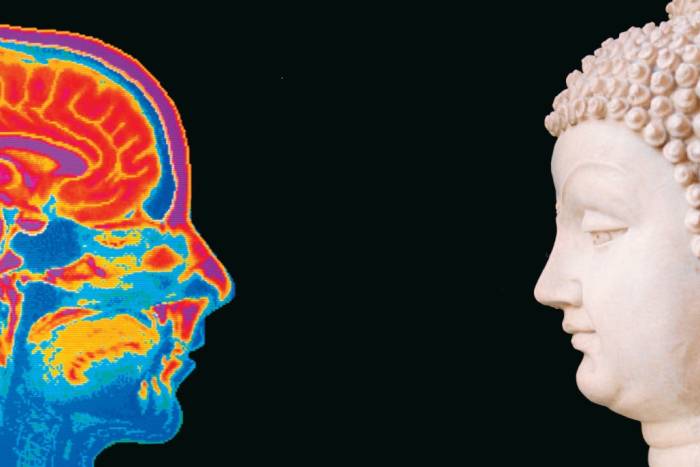Scientists declare animals are conscious beings, and they should be treated as such
The Cambridge Declaration of the Consciousness of Non-Human Animals could go down in history.
The human being may appear to be the only animal capable of examining its own consciousness, but is it really the only conscious animal on the planet? The question has a long history in science. Darwin pondered about it when he studied evolution, but his ideas on the continuity of evolution indicate that differences in consciousness are differences in degree, not in class. That is, if we have some sort of consciousness, other animals probably do too.
Recently, we have proved that several species — bottlenose dolphins, chimpanzees, elephants, even magpies— are capable of recognizing themselves in a “mirror test”. The latter, together with a growing awareness of animal rights and different neurological tests, inspired renowned scientists to thoroughly discuss the subject during the most recent Francis Crick Memorial Conference. The result was the Cambridge Declaration of the Consciousness of Non-Human Animals, presented by three eminent neuroscientists: David Edelman, Phillip Low and Christof Koch.
This historical announcement states that:
Non-human animals have the neuroanatomical, neurochemical, and neurophysiological substrates of conscious states along with the capacity to exhibit intentional behaviors. Consequently, the weight of evidence indicates that humans are not unique in possessing the neurological substrates that generate consciousness. Non-human animals, including all mammals and birds, and many other creatures, including octopuses, also possess these neurological substrates.
The declaration is directed to the general public more than to specialists. According to Phillip Low, for scientists, animal consciousness might be obvious, however, many people in the world are not aware of it. The idea is that the declaration can help prevent the abusive treatment of animals, helping them gain more rights, like humans. For example, around 25 million animals, many of which are conscious according to the declaration, are used annually for invasive scientific studies in the United States alone.
Related Articles
Why shrinking the size of life is synonymous of well-being
One of the great misunderstandings regarding modern spirituality is that to achieve it requires many things: readings, food, exercise, travel, groups and techniques. But perhaps it should be suggested
What is energy medicine yoga?
Energy Medicine Yoga (EMYoga) is slightly different from other types of Yoga, but it provides the same benefits in addition to a few very specific ones. One of them is that it gives you much more in
Red tea, the best antioxidant beverage on earth
Red tea is considered to be the most unusual of teas because it implies a consistently different preparation process. ––It is believed that its finding came upon surprisingly when traditional green
Is the internet on the verge of self-awareness?
More than 50 years ago, Marshall McLuhan described technology as an extension of our brains, constantly mutating and branching out. “These new media have made our world into a single unit,” the
How art can help us to age, healthy
Perhaps many of us already well know the formula for aging in health and wellness. A balanced diet and, as much as possible, one that’s natural. Keep our brains active and stimulated. Preserve and
Earthanima: documenting the living language of nature
The basic intuition that the Earth is alive and that nature has a language through which it communicates with us is what prompted this wood-art project named Earthanima. For the past couple of years
Dialogue with the Dalai Lama on science and spirituality
The Dalai Lama has been interested in science since he was a child. Over the years he’s visited many laboratories and has attended conferences that discuss consciousness from the scientific point of
Brian Eno's literary recommendations to rebuild society
Artists and authors often get asked what books or records they’d take with them to a deserted island. On principle, this is naturally an extreme anthology: urgency and tragedy guide its selection. It
Bill Mollison, natural ideologue and father of permaculture
Permaculture has established itself as a path towards communitarianism, but one that is in full symbiosis with nature. In practice, it is more than just a combination of agriculture, horticulture
A New Year's resolution for the earth
Worrisome quantities of waste are generated by human populations. Especially in cities, these have reached unprecedented and alarming levels. A largely uncontrolled practice, it affects everything on










